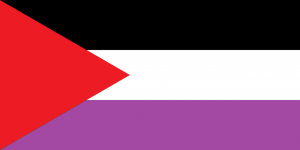Language/Mesopotamian-arabic/Vocabulary/Days-of-the-Week
Hi Mesopotamian Arabic learners! 😊
In this lesson, we will be learning the days of the week in Mesopotamian Arabic. Learning these vocabulary words can help you improve your language skills and have more meaningful conversations when speaking with native speakers. If you want to improve your vocabulary further, you can use the Polyglot Club website. Find native speakers and ask them any questions!
Days of the week[edit | edit source]
The days of the week are an essential part of any language. Here are the days of the week in Mesopotamian Arabic:
| Mesopotamian Arabic | Pronunciation | English |
|---|---|---|
| يوم الإثنين | yawm alithnayn | Monday |
| يوم الثلاثاء | yawm althulatha | Tuesday |
| يوم الأربعاء | yawm al'arbaa | Wednesday |
| يوم الخميس | yawm alkhamees | Thursday |
| يوم الجمعة | yawm aljum'ah | Friday |
| يوم السبت | yawm alsabt | Saturday |
| يوم الأحد | yawm al'ahad | Sunday |
It's essential to note that the week starts on Sunday in Mesopotamian Arabic.
Let's practice our Mesopotamian Arabic language skills by creating a dialogue:
- Person 1: يوم الأحد، الناس عادة ما يذهبون إلى الكنيسة. (Yawm al'ahad, alnnas 'adatan ma yathhabun 'iilaa alkanisah.) (On Sundays, people usually go to church.)
- Person 2: أعدك أنني سأحضر يوم الأحد القادم. (A'aduk 'annani sauhadar yawm al'ahad alqadim.) (I promise I will attend next Sunday.)
Cultural facts[edit | edit source]
The Mesopotamian Arabic language reflects the Iraqi culture, traditions, and history. Therefore, learning the language can give learners an insight into the country's history, politics, and attitudes. The language is infused with Semitic and Aramaic components to make it quite unique. Furthermore, many locals take pride in their language and heritage, making it essential for learners to show respect as they learn the language.
One interesting fact about Mesopotamian Arabic is that it has no word for "goodbye" or "farewell." Instead, locals will often say, "Allah ma'ak" (God be with you) when saying goodbye. This statement reflects the country's religious values and beliefs.
Another interesting fact is that the Mesopotamian Arabic vocabulary changes depending on the speaker's social status. For example, the language used when speaking to elders is significantly different from the language used when addressing peers or younger people. Therefore, it's vital to learn the different language registers before conversing with any Mesopotamian Arabic speaker.
Conclusion[edit | edit source]
In this lesson, we have learned the Mesopotamian Arabic vocabulary on days of the week. The language reflects the country's culture, traditions, and history, making it an exciting language to learn. To improve your Mesopotamian Arabic Vocabulary, you can use Polyglot Club, where you can find native speakers and ask them any questions!
➡ If you have any questions, please ask them in the comments section below.
➡ Feel free to edit this wiki page if you think it can be improved. 😎
Well done on mastering this lesson! Don't miss these related pages to expand your knowledge:Clothes, Health & Fruits.

